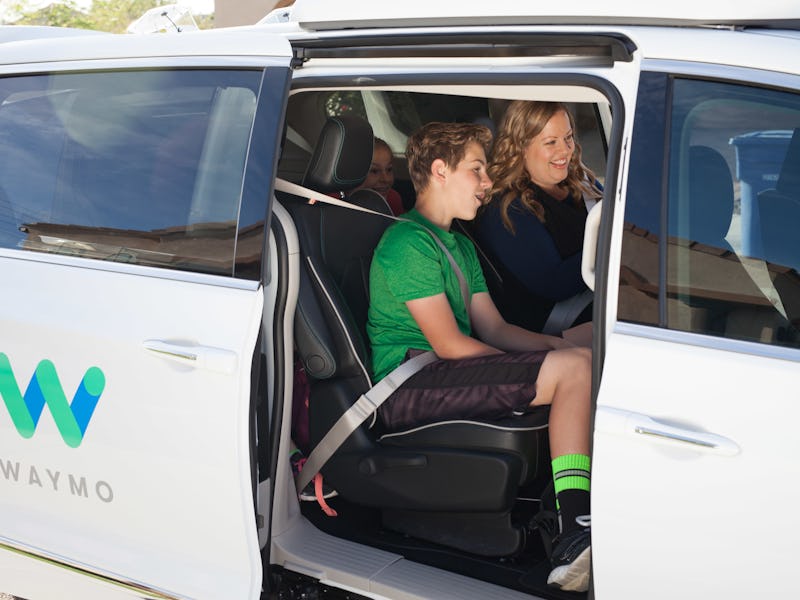Eventually, self-driving cars will be much safer than human drivers, but that doesn’t mean they’ll be flawless. Analysts from Morgan Stanley recently ran some rough projections on the expected fatality rates for a self-driving fleet of cars controlled by Waymo, and the numbers are an interesting look into the decisions that will have to be made in the future of transportation.
In a letter to clients on Tuesday, a Morgan Stanley analysis team led by Bryan Nowak and Adam Jonas laid out a bullish future for Waymo, the self-driving car arm of Google’s parent company Alphabet. The analysts predicted that Waymo would operate a massive fleet of vehicles by 2022, which would invariably cause accidents — even if the robotic drivers are much safer than their human occupants.
By 2022, Nowak et. al. write, Waymo could have driven approximately 3.9 billion miles, assuming its fleet expands to 84,000 cars over that time. Using the current rate of automotive death, about one ever 80 million miles driven, that means the Waymo fleet could be involved in 48.75, call it 50 deaths, they predict.
Self-driving car technology companies like Waymo, which recently signed a deal with Lyft to work on a self-driving ride-sharing partnership, are banking on lowering the fatality rate. Elon Musk claims his Tesla cars are the “safest on the road,” and it’s a safe bet to say that the highly competitive industry will hold itself to a pretty high standard.
John Krafcik, CEO of Waymo, debuts a customized Chrysler Pacifica Hybrid that will be used for Google's autonomous vehicle program at the 2017 North American International Auto Show on January 8.
Even assuming that Waymo’s cars are 90 percent safer than human-driven cars, that would still mean five deaths every 3.9 billion miles or so. Compared to the current rate of traffic fatalities, that’s incredibly good, but people still don’t trust autonomous cars — meaning any death will be magnified in the public discourse.
“Even in the event Waymo’s cars are an order of magnitude safer than today’s human-driven cars, Google may not want to test the US court system for the precedent,” the analysts write.
In other words, the early adoption of autonomous vehicles may require near-perfection, no matter how much of an improvement they may make.
